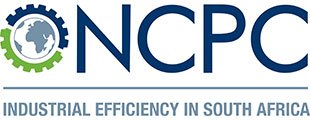By: Faith Mkhacwa
Energy and climate change specialist Faith Mkhacwa argues that having an energy efficiency strategy will enable organisations to cut their energy bills by up to 40%, thereby saving money and mitigating climate change
Reliable energy supply is essential for accelerating post-Covid-19 economic recovery and rebuilding the stability of the organisations that drive economic growth. However, economic growth does not have to mean an increase in carbon dioxide (CO2) emissions. Energy efficiency improvement will support recovery and reduce emissions, making this the perfect time to set higher targets for energy efficiency in industry and create incentives to enable organisations to act boldly. The multiparty Industrial Energy Efficiency (IEE) Project is ready to assist in restoring the health of South African industry through energy efficiency.
The far-reaching effects of the pandemic have turned most business plans upside down. For many companies with ambitious CO2 reduction goals, this new reality requires the strategic management of resources such as energy. Having a simple energy efficiency strategy will enable organisations to cut their energy bills by up to 40%, saving money and mitigating climate change. But organisations are not always aware of the value of energy efficiency and therefore often rather focus on investments in energy generation. This is partly because energy efficiency is invisible – it represents energy not used, and companies do not see this potential energy saving as an opportunity they should be investing in.
According to the International Energy Agency (IEA), “energy efficiency can play a vital role in economic recovery from the impact of the Covid-19 pandemic, and more efficient use of energy could generate an untapped source of fuel, larger than fossil and renewable energy sources combined”. Even though there is great potential for energy efficiency in the South African industry, it is not a strategic focus area for most industrial firms. As a result, investment in energy efficiency is competing with production-related project investments. Consequently, aligning business objectives with climate mitigation goals is easier for some businesses than for others. The IEE Project is positioned to help organisations to remain competitive while implementing carbon-reduction changes.
Energy efficiency can improve the economic competitiveness of countries and businesses, reduce greenhouse-gas (GHG) emissions and improve quality of life. The challenge, according to the IEA projections up to 2035, is that as much as two-thirds of the energy efficiency potential is likely to remain untapped.
Some of the businesses that the IEE Project works with understand the impact of energy efficiency and have stated that “returning to work means that the pressure to reduce costs and the carbon footprint continues to mount, and the reduced revenue due to the lockdown has increased the priority level for no-cost or low-cost energy efficiency projects”.
There are different ways in which South African companies can achieve greater gains by focusing on energy efficiency. Some of the projects may require capital expenditure. A recent IEA report concludes that implementing all cost-effective industrial energy efficiency measures would require about $50-billion in additional investment each year. This would reduce emissions by about 2 Gt of CO2 by 2030, which is equivalent to four times Mexico’s total yearly CO2 emissions. Industrial motors, for example, account for 38% of global electricity consumption. Applying intelligent drive technology in electric motor systems will ensure that motors run only when necessary, reducing global electricity consumption by 8% and industry application emissions by up to 40%.
The Covid-19 crisis has also magnified the growing importance of the role of energy managers. Organisations have an opportunity to further upskill and empower energy managers so that they can assist in maintaining business continuity and sustainability. Traditionally, being an energy manager meant coordinating energy efficiency projects and monitoring energy performance to ensure reliable energy supply, while minimising cost within a company. Now more than ever, energy managers should be positioned to respond to market disruptions and capitalise on new energy efficiency projects and opportunities.
Energy managers play an increasingly important role in mitigating both financial exposure and greenhouse-gas emissions. As the world begins to normalise and the prolonged impacts of the pandemic reveal themselves, the duties of energy managers should remain at the top of the business agenda. Whether it is assessing risk and managing short-term disruptions or building resilience against future disruptive events, energy managers will continue to play a key role in business sustainability. The IEE Project can assist energy managers with preparations for recovery through:
• online energy efficiency information sessions;
• various online energy efficiency training courses;
• advice on existing energy efficiency funding mechanisms, such as the 12L Income Tax allowance for energy efficiency savings;
• fully subsidised energy assessments;
• energy management systems implementation;
• ISO 50001 certification readiness support; and
• South African case studies showcasing tangible energy efficiency benefits.
The IEE Project would welcome the opportunity to work with energy managers and help organisations emerge from the Covid-19 lockdown stronger and with a new resolve to contribute towards climate change mitigation.
The IEE project partners are the United Nations Industrial Development Organization (Unido), the Department of Mineral Resources and Energy (through the South African National Energy Development Institute) and the Department of Trade, Industry and Competition (through the National Cleaner Production Centre – South Africa). The project is funded by the Global Environment Facility.
- Mkhacwa is an energy and climate change specialist whose extensive experience in energy includes generation, transmission, distribution, energy efficiency and renewable energy. She is a UNIDO-certified energy management systems expert and a RENAC-certified renewable-energy project developer who currently chairs the Southern African Females in Energy Efficiency. She is an IEE Project manager at the NCPC-SA






